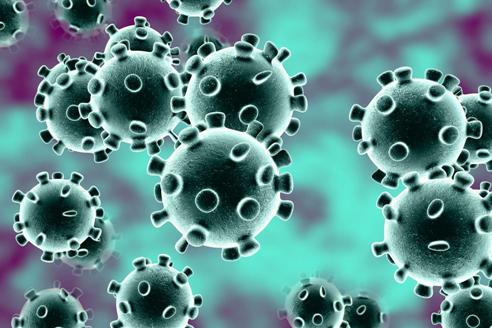
By Chikezie Esther
LAGOS JULY 1ST (NEWSRANGERS)-The Covid-19 pandemic, has had a significant impact on Nigeria’s economy and the healthcare system. The first case in Nigeria was recorded was recorded on the 27th of February, 2020 and since then the number of cases continued to rise with over 170,000 cases and over 2000 deaths confirmed as of June 2021.
One of the pandemic’s biggest impact on the Nigerian economy has been the disruption of the global supply of chains, Nigeria is heavily reliant on the imports for many essential goods including pharmaceuticals and medical equipment. The pandemic has caused disruptions also in the supply of chain, thereby leading to shortage of essential goods and high prices. This situation has made it more difficult for healthcare workers to access the equipment and supplies they need to treat patients.
The pandemic has also had a significant impact on Nigeria’s oil-independent economy. The drop in global prices has caused a significant decline in government revenue, as oil accounts for over 90% of Nigeria’s foreign exchange earnings. This has led to a reduction in government spending and a slowdown in economic growth. Prior to the pandemic,the Nigerian economy becomes unstable, as the the country was already dealing with non-Covid-19 related such as insecurity, falling oil prices, trade restrictions and public deficit issues, on top of long standing development challenges like; inadequate fiscal economic policies, unemployment and inflation in the country.
The county’s agriculture industry contributed approximately 26.95% (22.6 trillion), to the country’s GDP of 104 trillion dollars at the end of the fourth quarter of 2020. Unfortunately, the pandemic prevented this contribution from having any positive effect on the economy as hunger and inflation rates stayed high. To address this, the government implemented feeding palliatives measures which when ineffective due to the length of time between pronouncement and execution. While Nigerians found it humorous as skits and memes circulated on social media, the food inflation crisis was only getting started and worse daily.
Crime is also one of the major social problems in every society. The negative impacts of crimes are felt by victims and worldwide. Covid-19 has immensely impacted on crime in Nigeria, United Nations Organizations(UNO2020) suggests that, the effects of the Covid-19 on crime, security and the rule of law will be enormous. Reaffirming the above assertion, Transparency International (2020) has discovered that adjust the pandemic, organized crime has actually been on the rise. The Nigerian Drug Law Enforcement Agency(NDLEA) also arrested drug traffickers who continued operating despite the lockdown. Cybercrime has also increased through the scale of fake medical products online. Between 30th of March and mid-April following the commencement of the lockdown the National Human Rights Commission (NHRC), recorded extrajudicial killings and abuse of power by the Nigerian security forces. Some people were killed by law enforcement agents for allegedly not complying with containment measures.
However, many people especially in the private sector either lost their jobs or, were not being paid their salaries as long as the first phase of lockdown lasted. Small and Medium-sized Enterprises (SMEs), where most of our youths are engaged was badly hit by the pandemic, leading to its ineffectiveness and stagnation. Covid-19 also has it effects on Nigerians in the sense that unemployment became very massive unlike the way it was before the pandemic. The Nigerian unemployment was 23% , while underemployment rate as at 2018 was 16%, according to a report from the National Bureau of Statistics(NBS), but with the inception of the pandemic many jobs were lost and lots of people were rendered jobless. The Covid-19 pandemic has fueled youth unemployment in Africa’s largest economy.
More so, since the inception of the pandemic till date, the country’s education system has suffered unprecedented setbacks and continuously experiencing the impact of the pandemic after the shutdown of academic institutions. For almost 3 years there is still a staggering growth in Nigeria’s education system. Currently, the lack of implementing blended teaching and learning system before the occurrence of the Covid-19 pandemic creates a huge divide as well as irregularities in the academic calendar. In as much as the distance education has negative impacts on the country’s educational system,it is also beneficial in the sense that, it enhances as smart learning culture thereby exposing teachers and students to the understanding and the use of artificial intelligence devices,making access to information easier and solves problems faster. It is predicted to be the new normal for education sustainability in post Covid-19 education.
The COVID-19 pandemic has had a significant impact on Nigeria, affecting everything from public health to the economy. While the country has not experienced the same level of devastation as some other nations, the pandemic has still taken a significant toll on Nigerian society. The government has implemented measures such as lockdowns and travel restrictions to slow the spread of the virus, but these measures have had consequences for businesses and individuals alike. The pandemic has also highlighted existing inequalities in Nigerian society, with vulnerable populations such as the poor and elderly being particularly hard hit. However, there have also been positive developments, such as increased investment in the country’s healthcare system and the development of new technologies to help combat the virus. As Nigeria continues to grapple with the pandemic, it is clear that the effects will be felt for years to come, and that the country will need to work together to build a more resilient and equitable future.
Chikezie Esther law student of Delta State University, Oleh campus writes from Delta State










